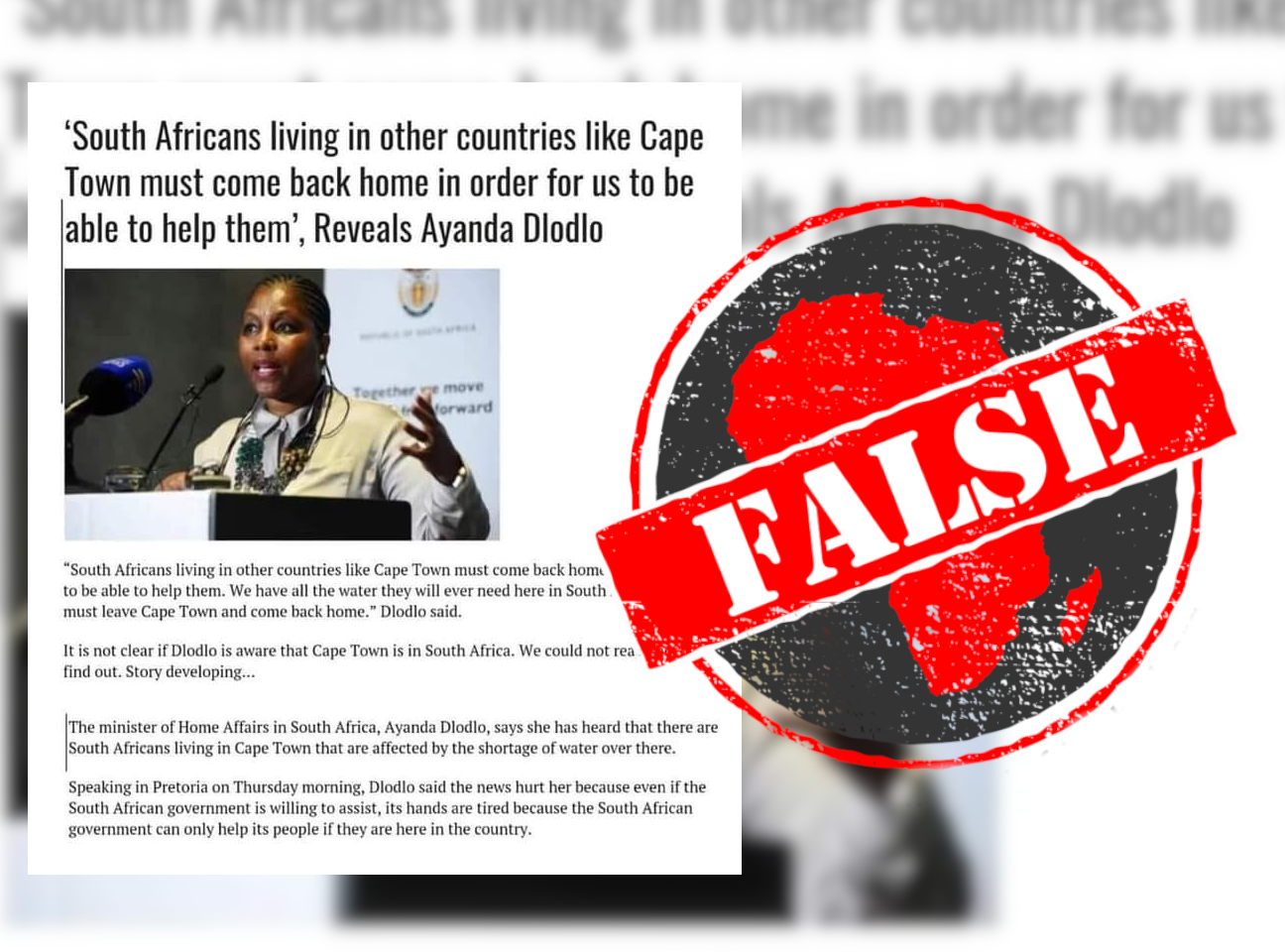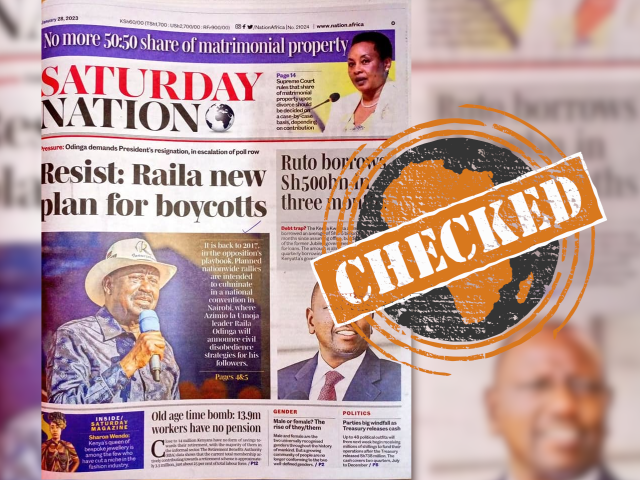An article circulating on Facebook in February 2021 claims former South African home affairs minister Ayanda Dlodlo said: “South Africans living in other countries like Cape Town must come back home in order for us to be able to help them.”
The article is in the form of a screenshot, and includes a photo of Dlodlo speaking from a podium.
Cape Town, a port city on South Africa’s southwest coast, has had severe water shortages in recent years. The article suggests Dlodlo made the statement after she heard about people affected by water shortages in the city.
But Dlodlo never said Cape Town was a country separate from South Africa.

Article from known fake news website
A Google search for the quote reveals it has been doing the rounds online since at least 2018.
The article was first published on the known disinformation website South Africa Uncut – southafricauncut.com. The website no longer exists.
In January 2018, the home affairs department released a statement condemning the article as “fake news”. On the day Dlodlo supposedly made the statement, she was attending the funeral of her brother and had not made any recent public appearances.
The article itself no longer exists, but a screenshot of it is still spreading disinformation online.
Republish our content for free
For publishers: what to do if your post is rated false
A fact-checker has rated your Facebook or Instagram post as “false”, “altered”, “partly false” or “missing context”. This could have serious consequences. What do you do?
Click on our guide for the steps you should follow.
Publishers guideAfrica Check teams up with Facebook
Africa Check is a partner in Meta's third-party fact-checking programme to help stop the spread of false information on social media.
The content we rate as “false” will be downgraded on Facebook and Instagram. This means fewer people will see it.
You can also help identify false information on Facebook. This guide explains how.



Add new comment